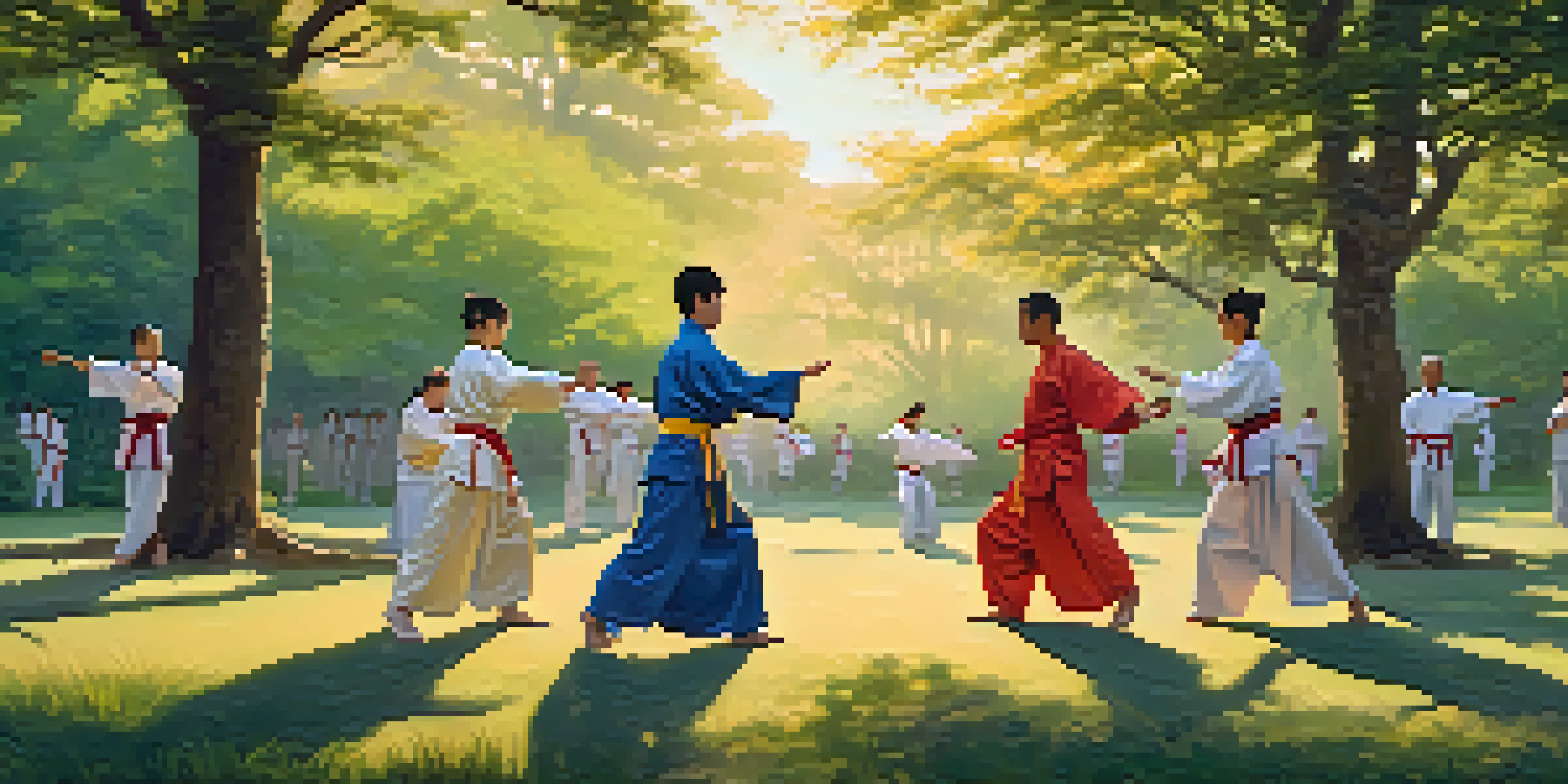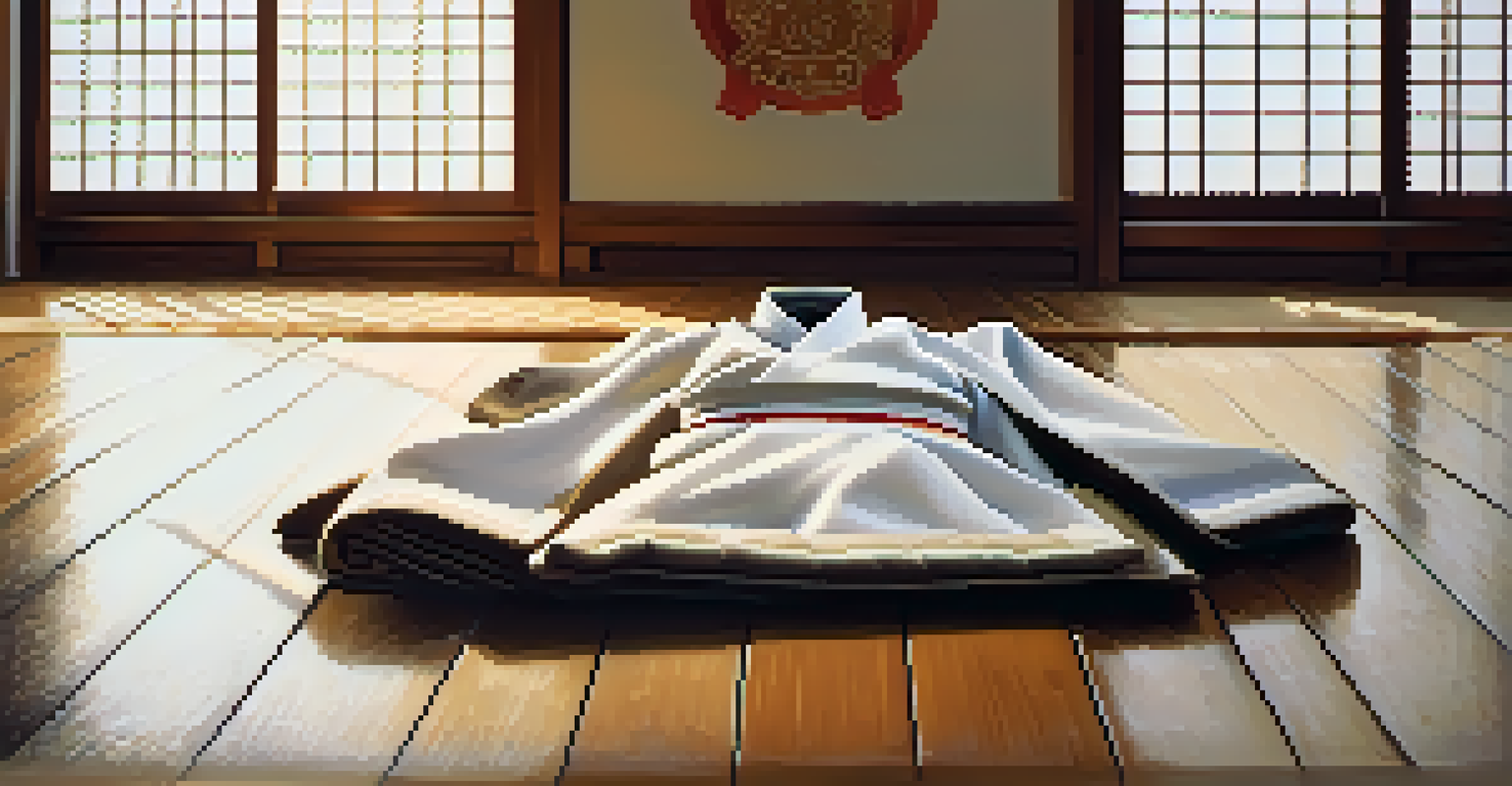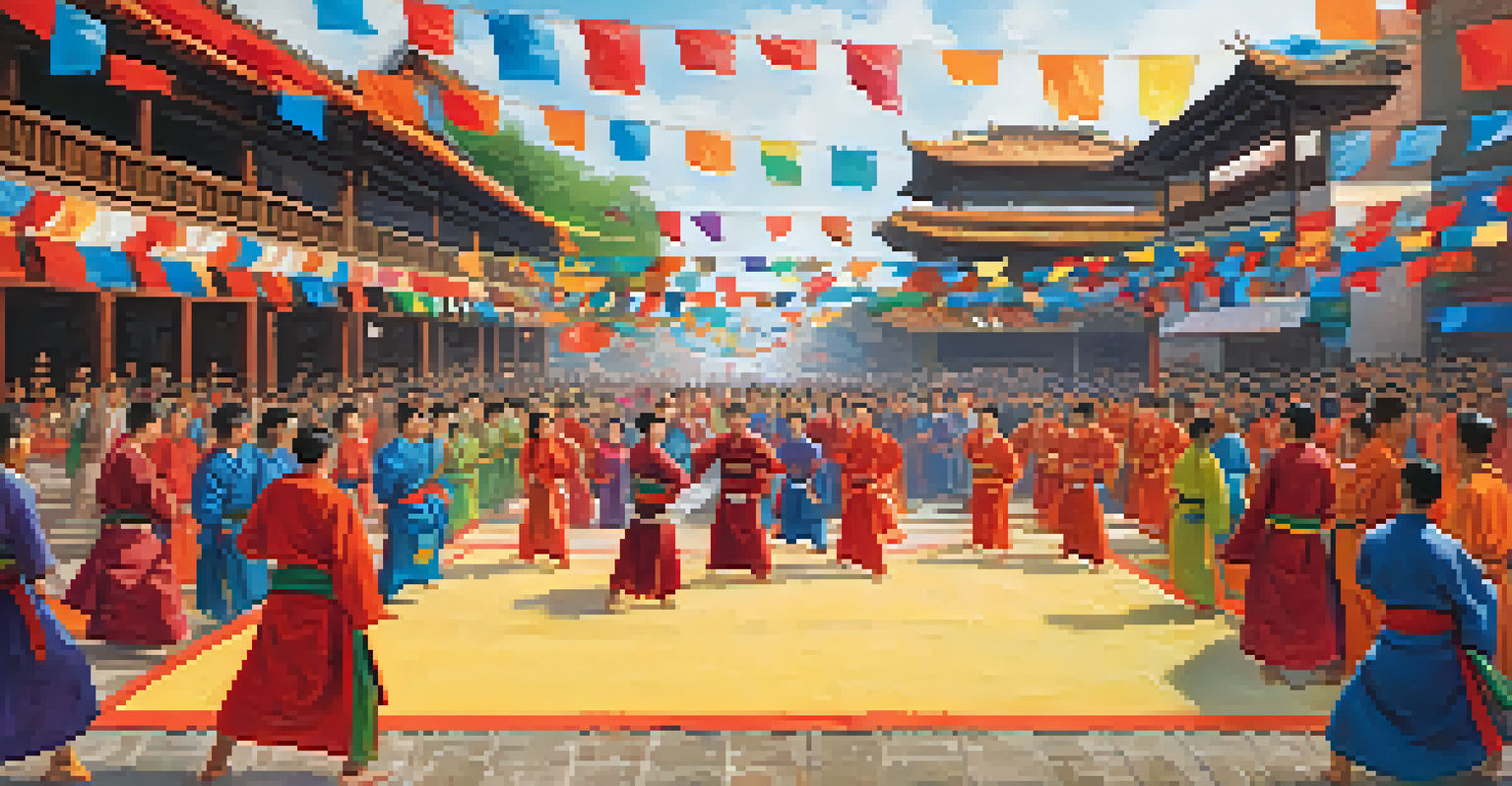The Impact of Cultural Appropriation on Martial Arts Styles

Defining Cultural Appropriation in Martial Arts
Cultural appropriation refers to the adoption of elements from one culture by members of another culture, often without understanding its significance. In martial arts, this can manifest when practitioners borrow techniques, attire, or philosophies from traditions they don't belong to. This appropriation can lead to a dilution of the original practices, stripping them of their cultural context and meaning.
Cultural appropriation is the act of taking or using elements from a culture that is not your own, often without understanding or respecting the significance of those elements.
For example, when martial arts are taught in a way that ignores the historical significance of the techniques, it can be seen as disrespectful. A traditional style like Kung Fu has deep roots in Chinese culture, and when its elements are used in a commercialized way, it can result in the original practitioners feeling disrespected. Understanding the origins of these practices is crucial for respectful engagement.
Ultimately, recognizing cultural appropriation within martial arts allows for a more thoughtful and respectful practice. It encourages practitioners to honor the traditions they are engaging with, fostering a deeper appreciation for the art form. This respect can enhance the martial arts experience for everyone involved.
The Historical Context of Martial Arts Styles
Martial arts styles often have rich histories tied to specific cultures and philosophies. From the ancient roots of Judo in Japan to the spiritual elements of Tai Chi in China, each style carries its own narrative. Understanding these backgrounds can help practitioners appreciate the depth and significance behind the movements they learn.

For instance, Karate was influenced by Chinese martial arts and was developed in Okinawa, integrating local customs and fighting techniques. This blend showcases how cultural exchange can enrich martial arts, but it also emphasizes the need for respect toward the original traditions. When these styles are practiced without acknowledgment of their history, it risks overshadowing the contributions of the cultures they originate from.
Understanding Cultural Appropriation
Cultural appropriation in martial arts occurs when elements from one culture are adopted without proper understanding, leading to a dilution of their significance.
A deep dive into the historical context of martial arts can foster a greater sense of responsibility among practitioners. This knowledge not only enriches their practice but also cultivates a community that values cultural heritage, ensuring that martial arts evolve while remaining true to their roots.
The Role of Commercialization in Martial Arts
In recent years, the commercialization of martial arts has surged, leading to the popularization of certain styles across the globe. While this can introduce diverse audiences to these practices, it often comes at the cost of authenticity. Schools may prioritize profit over preserving the cultural aspects of martial arts, inadvertently contributing to cultural appropriation.
To be culturally sensitive is to understand the importance of cultural context and the historical significance of the practices we engage in.
For example, martial arts films and competitions can glamorize certain techniques, presenting them as mere entertainment rather than as part of a rich tradition. This superficial representation can mislead newcomers, who may not grasp the deeper meanings and philosophies behind the movements. As a result, the martial arts community may see a rise in practitioners who lack a fundamental understanding of the culture.
Balancing commercialization with authenticity is essential for the future of martial arts. By promoting awareness and education around the cultural significance of these practices, the martial arts community can ensure that it remains a space of respect and honor for all traditions involved.
Cultural Sensitivity and Modern Martial Arts Training
Cultural sensitivity is crucial in the realm of martial arts, especially as styles become more widespread in diverse communities. Trainers and students alike must navigate the delicate balance between appreciation and appropriation. It's important to create an environment where cultural respect is prioritized, ensuring that everyone feels valued and understood.
For instance, incorporating discussions about the origins and philosophies of martial arts during training sessions can foster a more inclusive atmosphere. This not only educates practitioners but also encourages them to engage with the material on a deeper level. Furthermore, instructors can set an example by acknowledging their own cultural biases and promoting respectful dialogue.
Importance of Cultural Sensitivity
Fostering cultural sensitivity in martial arts training creates an inclusive environment that honors diverse traditions and promotes respectful dialogue.
By fostering cultural sensitivity in martial arts training, practitioners can create a space that honors the past while embracing diversity. This approach enriches the learning experience and promotes a sense of community, ultimately benefiting everyone involved in the practice.
Examples of Cultural Appropriation in Martial Arts
There are numerous instances where cultural appropriation has surfaced within martial arts, often leading to controversy. For example, some martial arts studios have marketed styles without any acknowledgment of their origins, presenting them as purely Westernized fitness routines. This oversight not only disrespects the original cultures but also confuses newcomers who may not understand the significance of what they're practicing.
Another example can be seen in the commercialization of traditional attire. When martial arts uniforms, or gi, are used inappropriately, such as in fashion shows or as mere costumes, it undermines their cultural significance. This can alienate those who practice martial arts as a way to connect with their heritage, leading to feelings of frustration and disrespect.
These examples highlight the importance of being conscious of how martial arts are presented and practiced in various contexts. By addressing these issues, the martial arts community can work towards a more respectful and informed approach to cultural exchange.
Promoting Authenticity in Martial Arts Practices
Promoting authenticity in martial arts requires a commitment to understanding and respecting the cultural roots of each style. Instructors can play a pivotal role by emphasizing the importance of lineage, history, and philosophy during training. This not only enriches the learning experience but also cultivates a greater appreciation for the art form as a whole.
For example, martial arts schools can incorporate cultural celebrations, workshops, and guest speakers from the original communities. This creates opportunities for practitioners to engage with the culture in a meaningful way, fostering a deeper connection to the traditions they practice. By prioritizing authenticity, schools can help combat the issues surrounding cultural appropriation.
Promoting Authenticity in Practices
Promoting authenticity involves understanding the cultural roots of martial arts and integrating meaningful cultural engagement into training.
Ultimately, promoting authenticity ensures that martial arts continue to thrive while honoring their origins. This approach encourages practitioners to be mindful and respectful, allowing for a more enriching experience that benefits the entire martial arts community.
Future Directions for Martial Arts and Cultural Respect
The future of martial arts will depend heavily on how practitioners and instructors address cultural appropriation and respect. As martial arts continue to evolve, it's essential to prioritize cultural education and sensitivity. This means fostering open dialogues, engaging with diverse communities, and ensuring that everyone's voice is heard within the martial arts world.
For instance, organizations can create platforms for cultural exchange, where practitioners share their experiences and insights about their martial arts journey. This not only enriches the community but also promotes a deeper understanding of the various cultures represented. By embracing these initiatives, the martial arts community can pave the way for a more inclusive and respectful future.

In conclusion, the journey toward cultural respect in martial arts is ongoing, requiring commitment and awareness from all involved. By addressing cultural appropriation and promoting authenticity, the martial arts community can grow stronger, fostering connections that honor the rich traditions from which these practices stem.